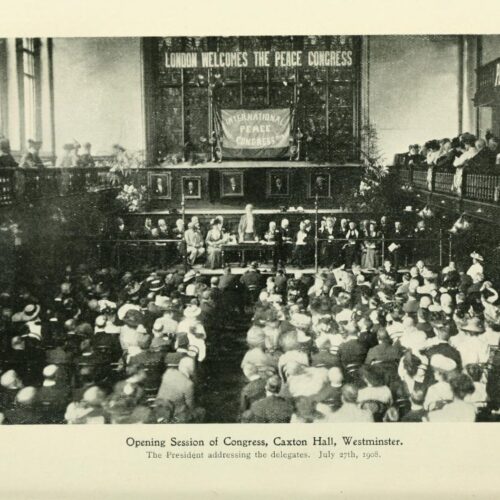

Josephine Gowa was an active member of the Hampstead Ethical Institute (later Hampstead Humanist Society) for over three decades, many years of which she spent as its Honorary Secretary. Gowa, like many others in the early Ethical movement, was also engaged in Liberal politics and the peace movement, an activism underpinned by humanist values and nurtured by the ethical societies.
Josephine Gowa was born on 4 March 1854 in Islington, London. Her parents were Philip Gowa (an insurance broker) and Juliette Gowa, both German-born. Gowa worked as an insurance agent, and lived for a number of years with Isabel Thies (1844–1913), another longtime ethical society member.
In 1899, Gowa was present at the International Congress of Women, which brought together women from suffrage societies throughout the world, facilitating discussion and fellowship. The following year, Gowa was one of the earliest supporters of the idea to form an ethical society in Hampstead. She was Honorary Secretary of the Hampstead Ethical Institute 1902-9, and again 1918-9, as well as of the Women’s Branch of the Hampstead Liberal and Radical Association. In 1908, she represented the Ethical Societies at the International Peace Congress in London. Gowa was also part of the Executive Committee for the Rationalist Peace Society, of which J.M. Robertson was president and Hypatia Bradlaugh Bonner the chair.
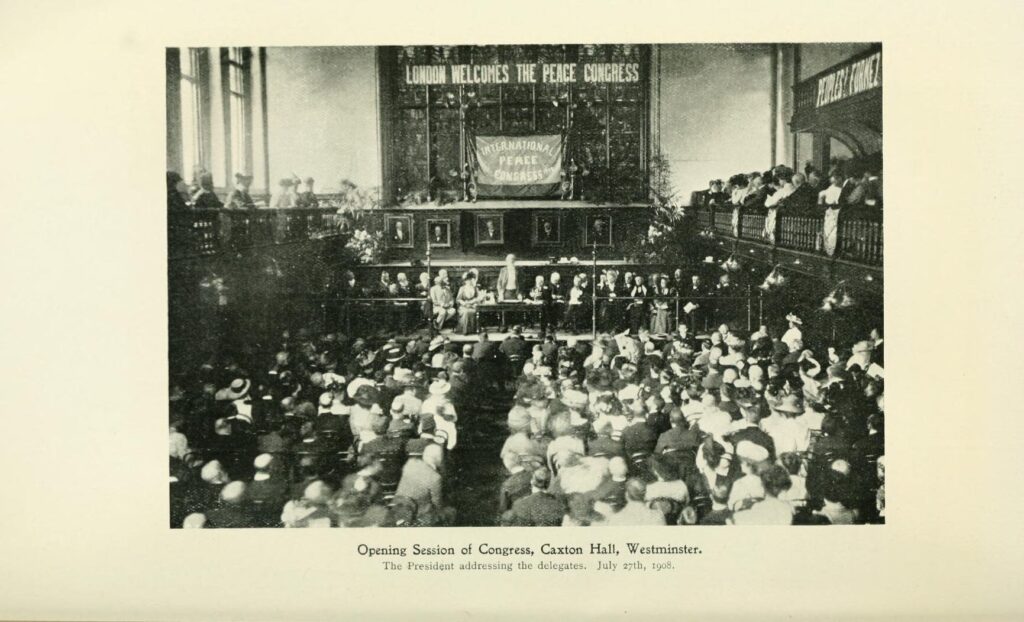
The Hampstead Ethical Institute had for its object the creation of opportunities ‘for bringing reason, knowledge, and sympathy to bear upon life’. Like the other societies, this was rooted in a belief that to live ethically and well required no ‘theological sanction’. Gowa’s active involvement in the Hampstead society, as well as in areas of suffrage, peace, and internationalism, illustrate a strongly felt social conscience and an independence of spirit. Although history has remembered relatively little of her life, what remains testifies to a freethinking and forthright character.
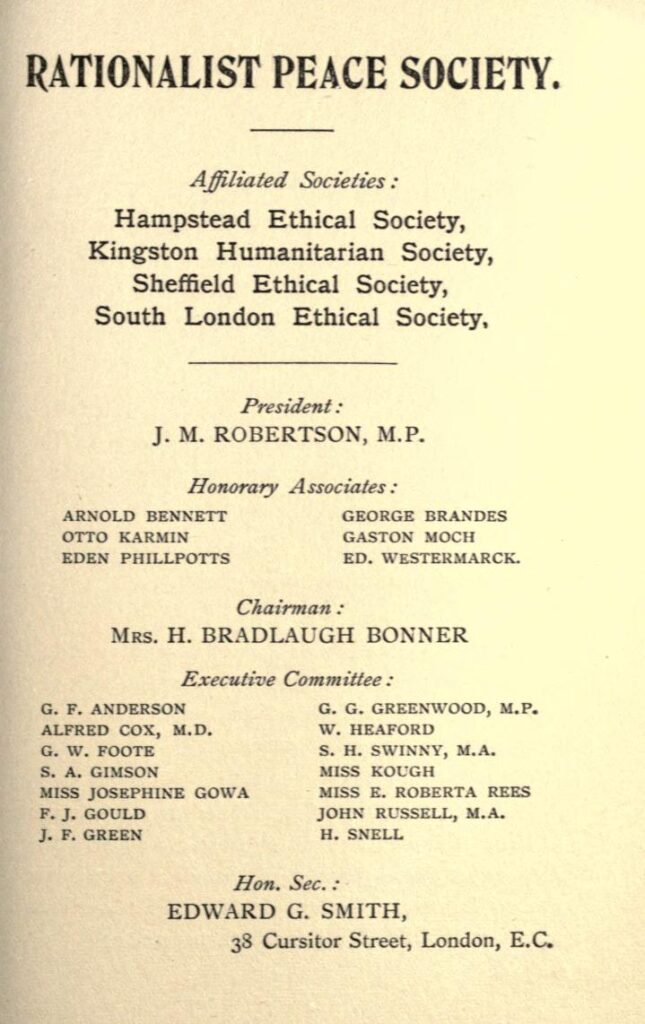
Josephine Gowa died on 18 June 1941 in Bridgwater, Somerset. One of her executors was solicitor Harry Westbury Preston, himself a longtime member of the ethical societies.
In Gustav Spiller’s history of the Ethical movement, he singled Gowa out as being central to the life of Hampstead Ethical Institute. Like a number of other women active in the early organised humanist movement, Gowa’s organisational skills added strength to a growing movement, which in turn gave a home to a woman with a keen sense of social duty, and a hunger for social change.
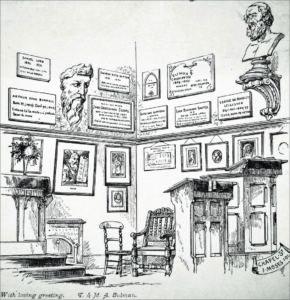
Positivism is a philosophical system based on the writings of French thinker Auguste Comte, which flourished from the 1830s onwards. […]
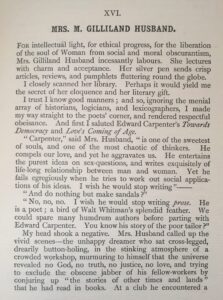
The attainment of the greatest possible amount of social happiness I take to be the noblest of human aims; the […]

You can always appeal to common decency, which the vast majority of people believe in without the need to tie […]
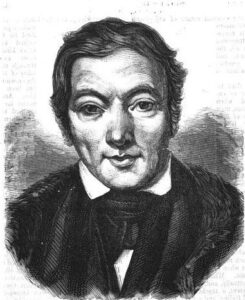
Robert Owen was a utopian socialist, philanthropist, and reformer, whose own religious scepticism fostered his desire for a secular society, […]